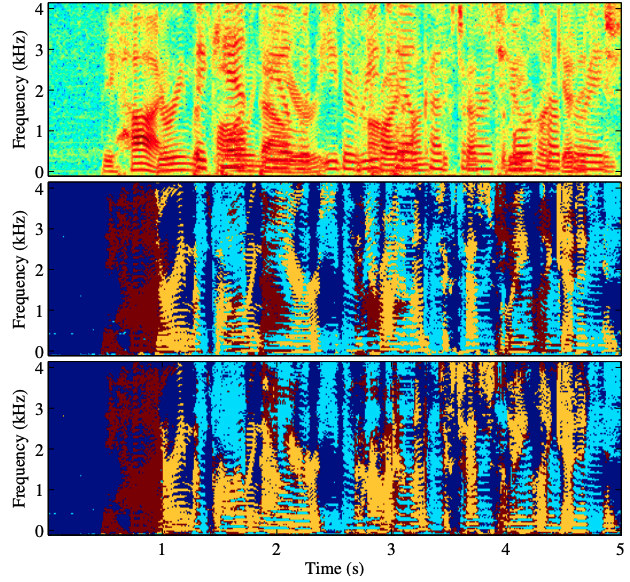End-to-End Speech Separation with Unfolded Iterative Phase Reconstruction
This paper proposes an end-to-end approach for single-channel speaker-independent multi-speaker speech separation, where time-frequency (T-F) masking, the short-time Fourier transform (STFT), and its inverse are represented as layers within a deep network. Previous approaches, rather than computing a loss on the reconstructed signal, used a surrogate loss based on the target STFT magnitudes. This ignores reconstruction error introduced by phase inconsistency. In our approach, the loss function is directly defined on the reconstructed signals, which are optimized for best separation. In addition, we train through unfolded iterations of a phase reconstruction algorithm, represented as a series of STFT and inverse STFT layers. While mask values are typically limited to lie between zero and one for approaches using the mixture phase for reconstruction, this limitation is less relevant if the estimated magnitudes are to be used together with phase reconstruction. We thus propose several novel activation functions for the output layer of the T-F masking, to allow mask values beyond one. On the publicly-available wsj0-2mix dataset, our approach achieves state-of-the-art 12.6 dB scale-invariant signal-to-distortion ratio (SI-SDR) and 13.1 dB SDR, revealing new possibilities for deep learning based phase reconstruction and representing a fundamental progress towards solving the notoriously-hard cocktail party problem.
PDF Abstract

 WSJ0-2mix
WSJ0-2mix